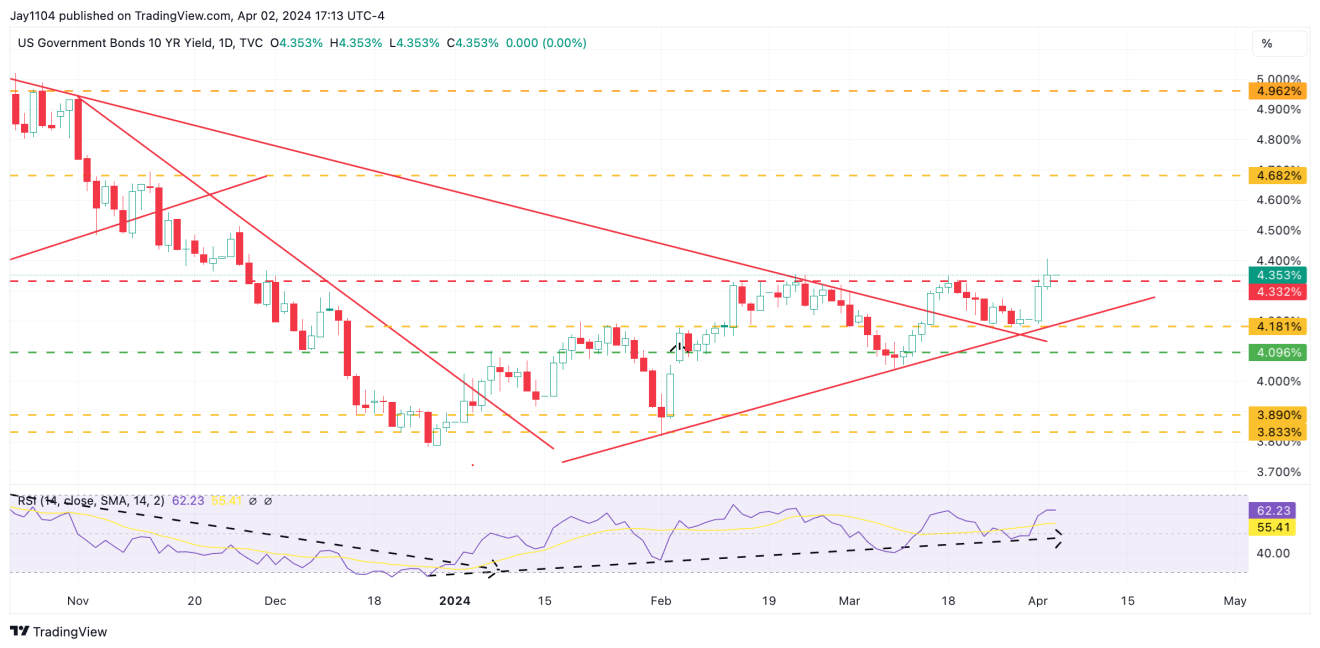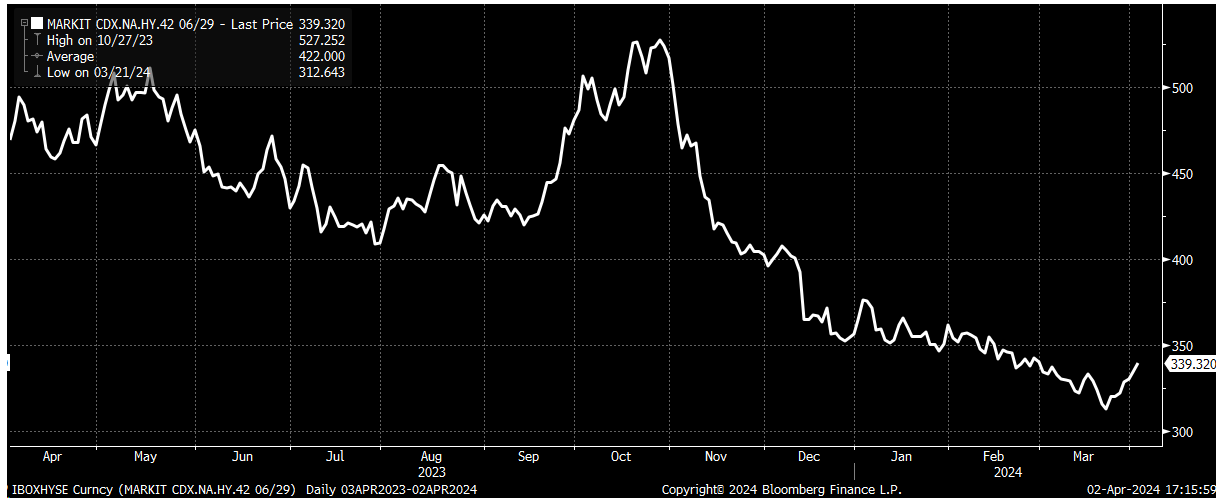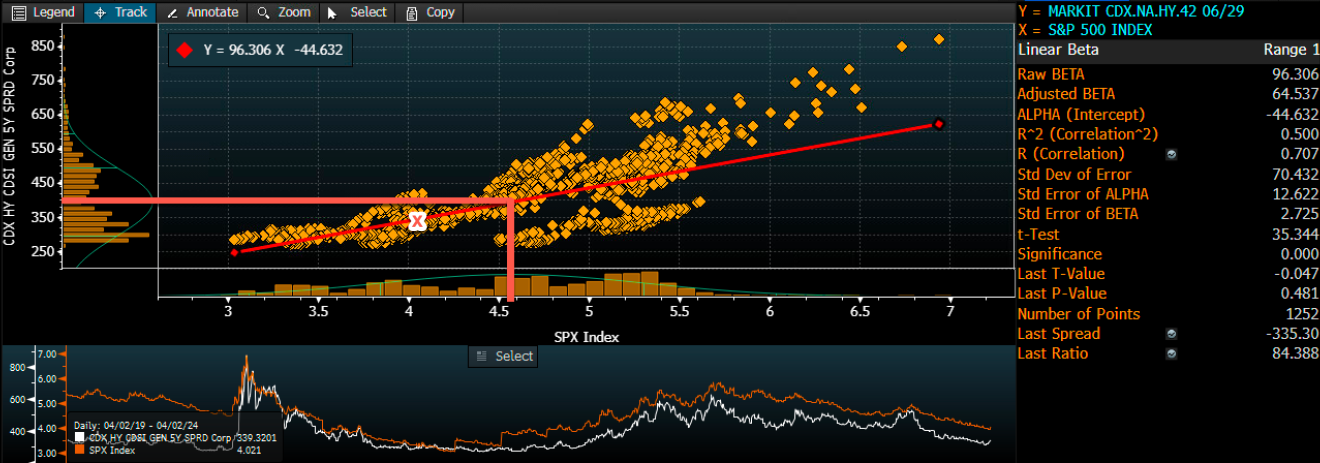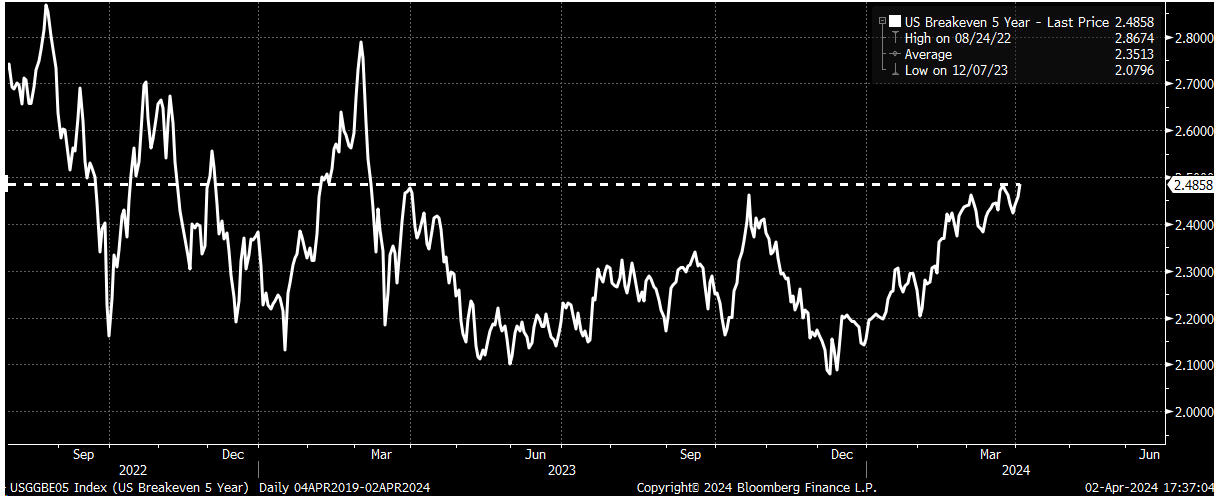Stocks traded lower on Tuesday, with the S&P 500 falling by around 70 bps. The move follows a pretty decent-sized move with higher rates across the curve over the last two days.
Today, we will get the ADP private payroll report, and it is estimated that the number of jobs will increase by 150k versus 140k last month.
Then, at 10 AM, we will get the ISM services index, which is expected to rise to 52.8 from 52.6 last month, while prices paid are expected to fall to 57.6 from 58.6.
Today at 12:10 PM ET, Powell will make his second appearance within a week, this time at Stanford, and speak about the economic outlook. It will be interesting to see if he adds anything to what he said last week.
Yesterday, the 10-year Treasury made some progress higher, rising to and closing at 4.35%, which barely pushed above the resistance level at 4.35%.
Additionally, we saw the CDX High Yield credit spread index rise yesterday to 340. Rising rates and widening spreads are sending a message that financial conditions are starting to tighten.
If this trend continues, it will indicate a market that is finally accepting that conditions are too loose, and it may mean that we see the spread index move higher and back into a range in the 400s versus the 300s.
Spreads at 400 are a big difference in valuations on the S&P 500. We could be talking about a current earnings yield closer to 4.6%, then a current earnings yield of around 4%.
That is a PE ratio of 21.7 TTM versus yesterday’s current PE ratio of 25 TTM, or about 14%. At that point, we are talking about an S&P 500 closer to 4,400 than its current value.
This shows us the source of our multiple expansions, mainly from easing financial conditions.
So rates are breaking out, the dollar is breaking out, and credit spreads are breaking out; it seems highly improbable that stocks will not trade lower from here.
I know everyone has been brainwashed to believe that something is fundamentally different from the market yesterday than in October or a year ago.
Still, the market is working identically to how it worked before. And if we are now going to revert to the other side of the financial conditions spectrum, then it seems likely that stocks will face a very harsh reality.
But again, for rates to push higher and the dollar to strengthen, we need the data to give rates and the dollar a reason to rise.
If the data is very weak, then rates and the dollar will collapse, and so too shall spreads, and equities will be able to resume their advance.
Based on where inflation swaps are trading and 5-year breakevens, the market seems to think that incoming data will be strong enough for rates to move higher. It is an election year, after all.
Anyway, that’s it for now.
